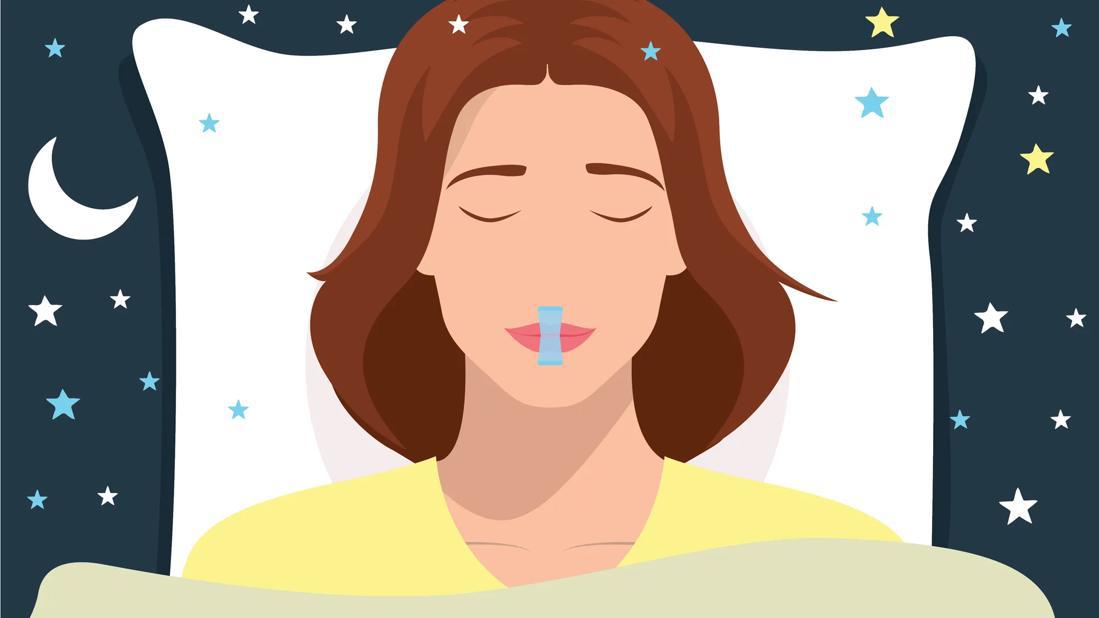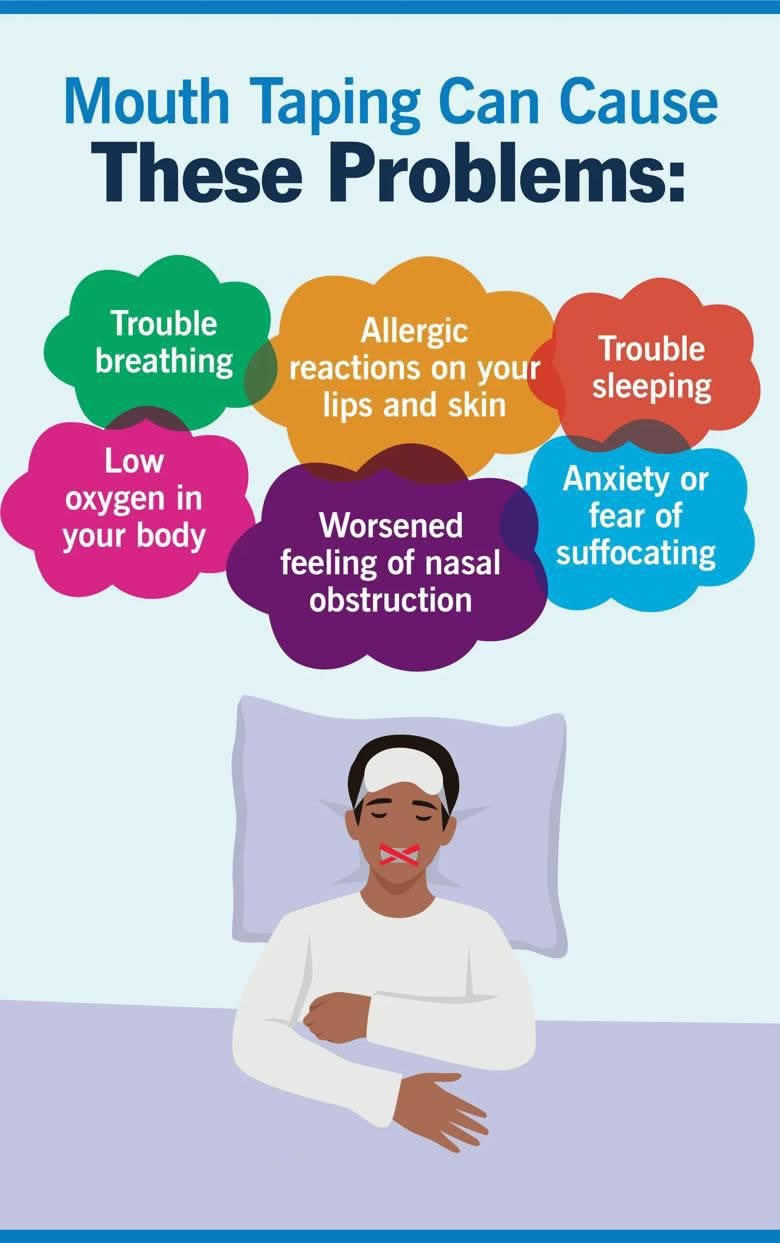Is Mouth Tape Safe To Use While Sleeping?
Mouth taping may seem promising, but it can actually cause more harm than good, especially if you snore or have sleep apnea

Mouth breathers can get a lot of flak for snoring. In trying to find a quick fix, some may turn to mouth taping. But does it work? And is it safe to use while sleeping?
Pediatric sleep medicine specialist Brian Chen, MD, says mouth taping can cause other complications when you’re trying to get a full night’s rest.
Dr. Chen discusses why this trend isn’t all it’s cracked up to be and what you should do instead.
What is mouth taping?
Mouth taping is the act of taping your mouth shut with medical-grade, skin-safe adhesive tape so you’re forced to breathe through your nose instead of your mouth. This can supposedly prevent snoring while you’re sleeping.
The idea grew in popularity thanks to a once-viral TikTok trend, where influencers claimed many possible benefits.
Potential mouth tape benefits
The theory is that mouth taping helps you to better breathe through your nose, which is considered healthier than mouth breathing. Breathing through your nose when you sleep can help:
- Lower your blood pressure
- Improve oxygen levels
- Trap and filter out allergens found in the air
- Humidify and warm the air you breathe
- Moisturize and soothe sore throats
- Improve bad breath and oral health
- Improve snoring
- Improve dry mouth
- Develop structural improvements to your jawline
But taping your mouth shut can cause more harm than good.
Potential risks of mouth taping

Mouth taping comes with a few risks. It may cause:
- Difficulty breathing
- Redness, irritation or allergic reactions on your lips and skin
- Increased anxiety if you don’t like the feeling of having your mouth taped shut or have trouble breathing through your nose
- Difficulty falling and staying asleep
These complications may become increasingly difficult if you’ve always been a mouth breather and have a hard time adjusting to mouth tape. Dr. Chen also says you should never use it if you have:
- Nasal obstruction
- Nasal congestion
- Chronic allergies
- Sinus infections
- Enlarged tonsils
- Deviated septum
- Heart issues
“For individuals already struggling with conditions like nasal obstruction or chronic allergies, mouth taping introduces an unacceptable level of risk,” Dr. Chen emphasizes. “Having your mouth taped closed forces you to rely on only your nose for air, potentially leading to severe respiratory distress, significant drops in oxygen levels and exacerbation of underlying health issues during sleep.”
Does mouth taping work?
There’s not enough scientific evidence that shows mouth taping works as a way to stop snoring. Part of the problem is that there are so few studies on mouth tape — and those that do exist are focused on very small populations.
“Plus, most of the evidence is anecdotal,” Dr. Chen notes.
For example, one small study showed that 30 people snored less after mouth taping. But another study of 36 people with asthma showed no signs of change in their condition after mouth taping. And a 2022 study revealed that 10 participants struggled with a phenomenon called mouth puffing, where they continued to try mouth breathing even after their mouths had been taped shut.
“There’s not strong enough evidence to support that mouth tape is beneficial, and it’s not part of our current practice to treat any sleep disorder,” reiterates Dr. Chen. “Mouth taping could also cause an allergic reaction from the tape or a skin irritation or rash, so you should always talk to a doctor before starting this practice.”
Is mouth taping safe?
Although some swear by using mouth tape for snoring and sleep apnea, Dr. Chen says it’s not recommended. Instead, there are safer solutions to stop snoring, like:
- Sleeping on your side instead of your back
- Using nasal strips to improve airflow
- Taking decongestants to help relieve congestion
- Using a continuous positive airway pressure (CPAP) machine or oral appliance if you have sleep apnea
“Snoring can be a sign of other conditions, like sleep apnea,” explains Dr. Chen. “Mouth taping seems like a solution, but it’s only a short-term fix for what might be a larger problem with your airways. Before trying mouth tape, talk to your doctor about what’s really going on.”